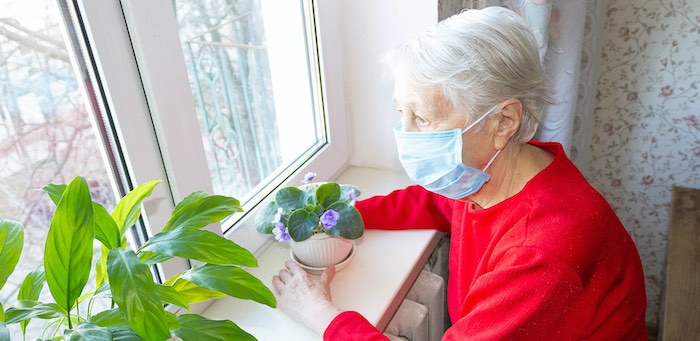Four Ways COVID-19 Has Impacted Lung Cancer Patients

Because COVID-19 is a lung illness, patients with existing lung conditions are more susceptible to coronavirus complications. This includes lung cancer patients and pleural mesothelioma patients.
Coronavirus health concerns have changed treatment and lifestyles for lung cancer patients. Many doctor’s appointments are now done over the phone or online. Immunocompromised patients also face added health risks.
Below is a list of four ways lives have changed for lung cancer and pleural mesothelioma patients.
Request a Free 2025 Mesothelioma Guide
1. Limited In-Person Appointments
Many appointments are now telehealth. This means patients have to talk to their doctor over the phone or via video call.
Older patients with little experience with technology may struggle with this. It also denies patients the ability to interact with their medical care team. For many, nurses and physicians have offered them strength throughout their treatment journey.
Telehealth options do offer a solution. They allow patients to continue communicating with their care team during the pandemic.
For cancer patients, some treatments are being delayed or rescheduled. Increased demand in health centers is also impacting emergency room availability and open hospital beds.
Some doctors are allowing patients back into the office. Strict measures are in place to ensure waiting rooms and patient rooms are safe. This includes thorough cleaning and health screenings of patients and staff.
2. Compromised Individuals Advised to Stay Home
Public health officials advise those with weakened immune systems or high-risk conditions to stay home. This includes those with lung cancer, pleural mesothelioma and other lung conditions.
Cancer patients’ lifestyles are greatly affected. They are no longer able to visit the grocery store, pharmacy, in-person support groups and much more.
Communities have been able to find temporary solutions. Grocery and prescription delivery services allow patients to stay at home. Many support groups have also transitioned to virtual meetings.
Self-isolation can also have an impact on patients’ mental health. Many cannot see family and friends and must stay home alone. Technology has become more important as patients rely on computers, tablets and phones to connect with their loved ones.
3. Added Health Concerns
Cancer patients already have several health concerns. They must deal with cancer symptoms and treatment side effects. COVID-19 presents more risks to patients.
Lung cancer and pleural mesothelioma patients may already experience a cough and trouble breathing as a symptom of cancer. COVID-19 could cause these symptoms to become severe.
Many cancer patients are also considered immunocompromised. In other words, their immune system is weak and they cannot easily fight off illnesses. As a result, patients are more susceptible to COVID-19 complications.
According to the Centers for Disease Control and Prevention (CDC), some symptoms to look out for include:
- Fever or chills
- Cough or sore throat
- Shortness of breath or difficulty breathing
- Fatigue or body aches
- Headache
- Congestion or runny nose
- New loss of taste or smell
- Nausea, vomiting or diarrhea
Patients should discuss any abnormal symptoms with their doctor as soon as possible.
4. Additional Health & Safety Precautions
COVID-19 health concerns require cancer patients to take extra safety precautions. The CDC recently shared tips for those with high-risk medical conditions. CDC tips include:
- Limit interactions with others as much as possible
- Wash your hands frequently with soap and water for at least 20 seconds
- Use hand sanitizer with at least 60% alcohol content
- Avoid touching your face with unwashed hands
- Wear a mask that covers your mouth and nose when in public
- Clean and disinfect your space
- Monitor your health and contact your doctor immediately if you feel sick
*This list is not exhaustive. The CDC provides a complete list of prevention tips.
Many patients rely on caregivers to perform day-to-day activities. Caregivers should also follow extra precautions to help prevent exposure.
Patients should discuss any health conditions with their doctor. Medical professionals can answer questions specific to the patient’s individual case. They can also provide professional recommendations.